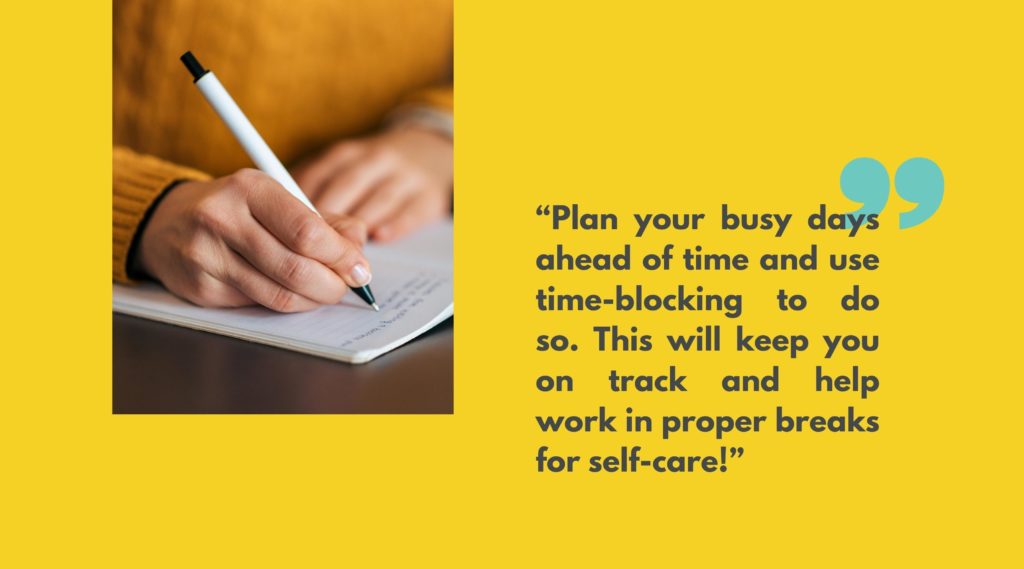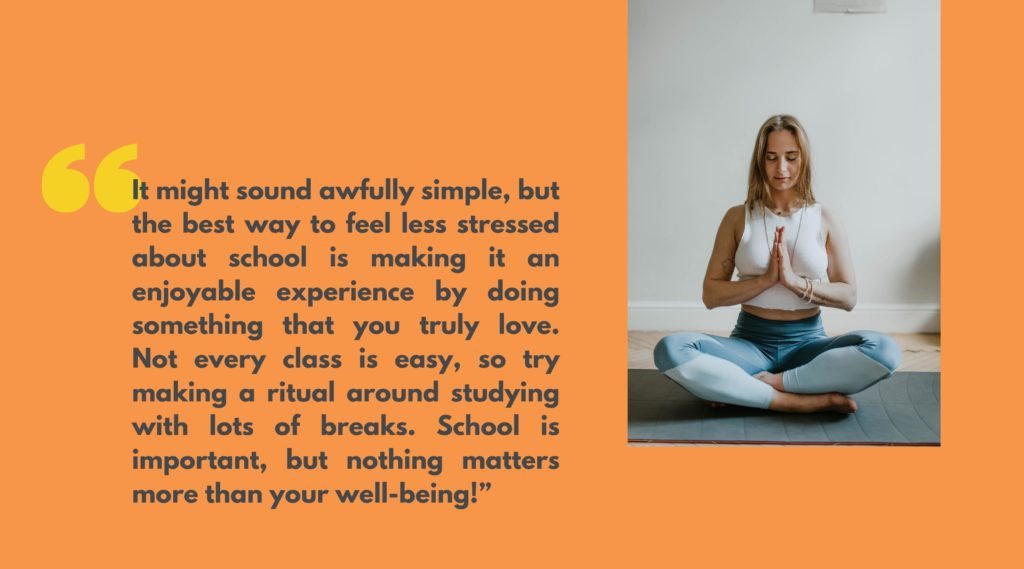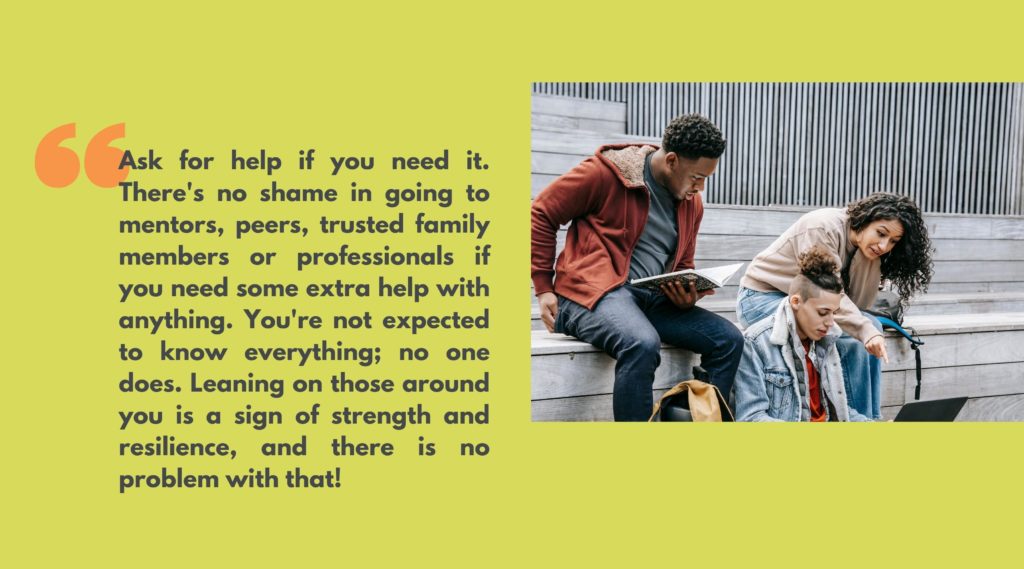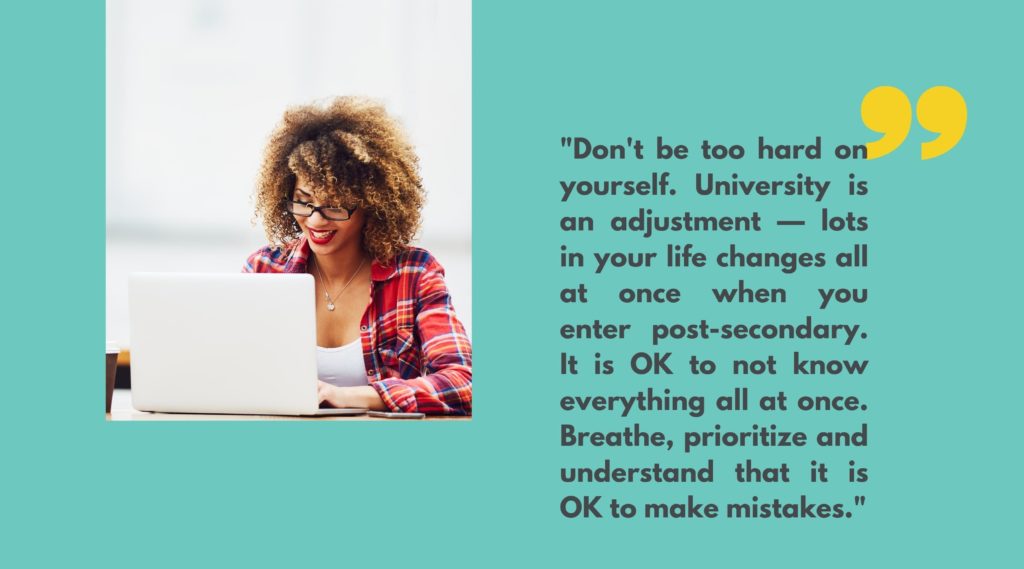
On this page
It’s totally understandable if you’re feeling anxious during post-secondary school. You might be worried about things like your grades, relationships, COVID-19 or what to do after you graduate. If you’re a student who’s experiencing anxiety, you’re definitely not alone! Good2Talk reached out to post-secondary students for their top tips for managing anxiety. As you read them, you might find it helpful to notice which ideas resonate most for you.
You can check out the tips below:
Plan it out
- “When studying, make a plan. Write out all the topics you need to know, and then go back and fill in the knowledge using your memory. Then go back and fill in the content gaps with notes / resources. Not only does this ensure you have your bases covered, but it requires active recall, which is much more effective than passive studying!”
- “Focus on the now and the task at hand rather than ‘all the things’ or the future.”
- “My go-to way to cope with anxiety around exams and due dates is to make a priorities list which includes upcoming due dates and placing them from highest priority to lowest. This helps me stay on top of due dates and avoid much of the anxiety that comes with impending due dates! I find that creating a calm environment to study / do homework also helps fight feelings of anxiety. For me, this typically includes a candle and a coffee :)”
- “Make ‘To Do’ lists and stick to them! Completing tasks, no matter how big or small, will give you a sense of accomplishment, productivity and the drive to continue to check off those tasks.”

- “Find something to look forward to — even if you won’t have the time to do it that day. Put it on a sticky note as a reminder. Perhaps it’s a passion project, planning a dream trip, cooking or researching a recipe, etc. This can reinvigorate the true essence of who you are and re-ignite your self-guidance.”
Take a break
- “I listen to music! Helps a lot.”
- “Working out, taking a nap and watching something funny.”
- “I put on my favourite podcast and bead…. Gets me out of my head!”
- “Taking time to do little acts of self-care every now and then can help a lot — going for a walk, reading a book, watching a movie, going to bed early. Being able to give yourself a break and relax can help you reset so you can do your best!”
- “Splash cold water on my face!”

Connect with others
- “Talk to your professors, instructors, TAs, etc. Yes, this can be scary, but it doesn’t always have to be answering questions in class. Use office hours to have some one-on-one time, which can also lead to additional support or even a future mentor!”
- “Enjoy a good group of pals who you can text with, laugh with and go out safely with. A friendly social network really connects you with the true reality of post-secondary stress for everyone.”

Check in with yourself
- “Reflect on your strengths, think of handling challenges in the past, recall achievements without qualifying them as ‘small or big’. Experiment with going for ‘good enough’. Give yourself the permission to learn rather than ‘win’. Think along the lines of an experiment rather than get attached to an outcome.”
- “Write down how you want to feel and brainstorm goals that will take you there.”
- “Give yourself time to reflect on each day — it could be before bed or right when you wake up — and perform regular mental health check ins with yourself. It’s OK to feel anxious and feel overwhelmed, but make sure you give yourself time to promote positive mental health and well-being.”
- “In everyday life, notice thoughts that arise when you need to make a decision. Which ones are easy to make? Which ones make you become indecisive? Evaluate what is making it so important. Practise boundaries. Often, anxiety comes from a place of not wanting to disappoint others.”

Good2Talk would like to thank all the students who shared their top tips in support of Ontario post-secondary student mental health and well-being. Their responses have been edited for length and style. If you’re experiencing anxiety, you can reach out to one of our professional counsellors or volunteer crisis responders 24/7. We’re Good2Talk whenever you need us!



